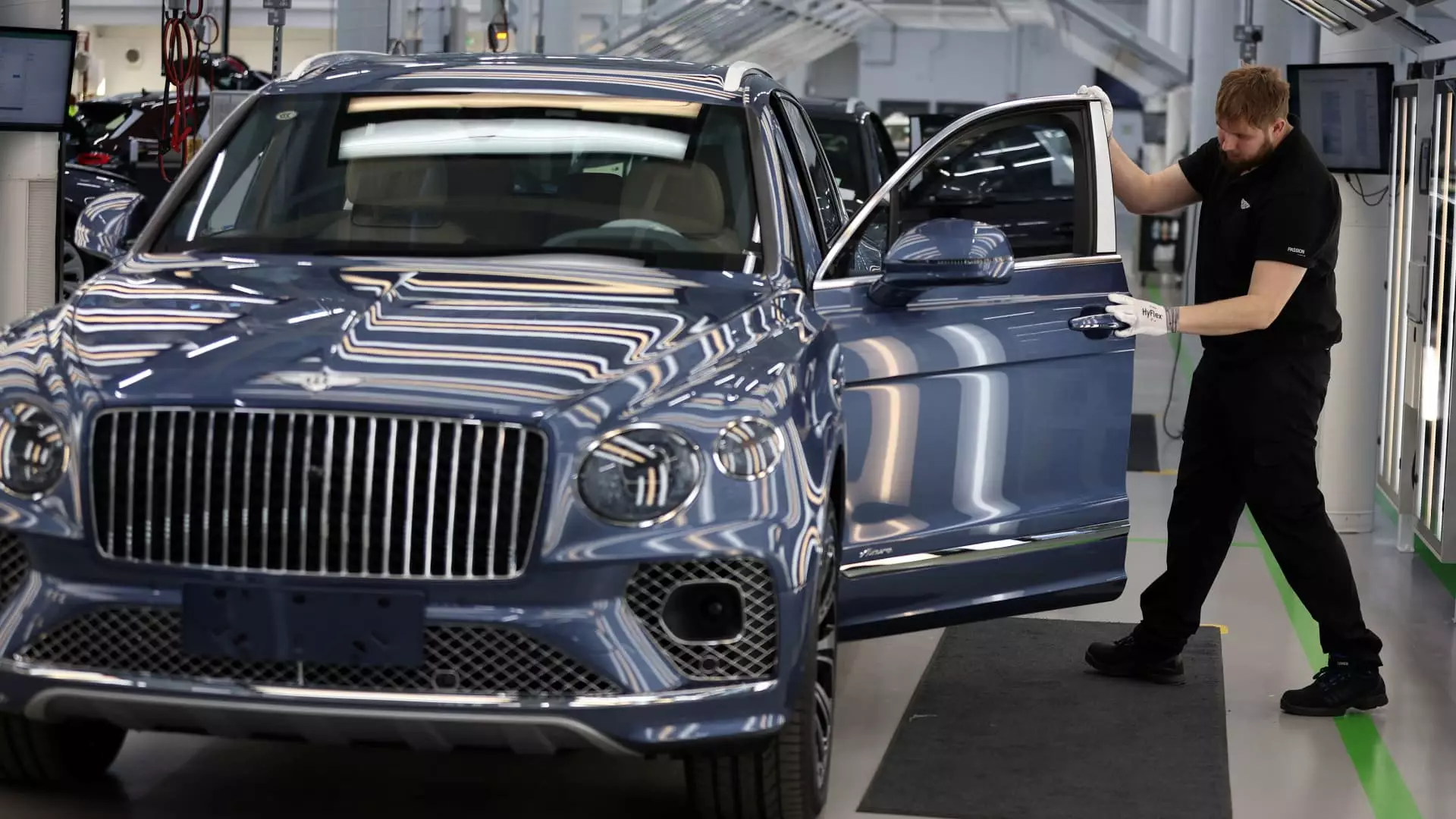Bentley Motors, the prestigious British automaker known for its ultra-luxury performance vehicles, has announced a significant shift in its electric vehicle (EV) strategy, indicating the company will not exclusively transition to electric powertrains until at least 2035. Originally aiming for an all-electric lineup by the end of this decade, Bentley’s evolving plans underscore the complexities of the automotive industry amid changing consumer demand and market conditions. Bentley’s Chairman and CEO, Frank-Steffen Walliser, highlighted that the current demand from their high-end clientele for electric vehicles is not substantial, necessitating a reassessment of their roadmap to electrification.
One of the principal reasons cited for this delay is the sluggish demand from current Bentley customers for EVs. Walliser candidly stated, “there’s not a lot of demand,” suggesting that traditional luxury car buyers may not be ready to fully embrace the electric shift. This reluctance is contrasted with the regulatory landscape, which is increasingly pushing automakers toward electrification. With legislative pressures mounting, Bentley is compelled to adapt to stay competitive, even as they acknowledge the existing gap between customer readiness and regulatory requirements.
Although Bentley is often perceived as a brand synonymous with opulence—offering meticulously designed vehicles powered by powerful internal combustion engines—this shift marks an attempt to balance tradition with innovation. Walliser’s statements during a recent media briefing reinforced this duality, where he noted that while legislation is propelling the growth of EVs, genuine consumer interest remains a key concern.
Looking ahead, Bentley has committed to introducing at least one new EV or plug-in hybrid electric vehicle (PHEV) annually until 2035. Their inaugural electric offering, described as a “Luxury Urban SUV,” is slated for release in 2026, a significant delay from earlier projections that aimed for a 2025 launch. This postponement can be attributed to not only market dynamics but also internal challenges such as software integration and the construction of a suitable architecture for electric vehicles that meets Bentley’s renowned standards.
Matthias Rabe, the head of Bentley’s research and development, emphasized the company’s intention to produce PHEVs in response to market demand. This strategy indicates a measured approach to electrification, recognizing that hybrid models can serve as a viable bridge between traditional gasoline engines and full electric systems. Such a shift demonstrates Bentley’s willingness to adapt while still respecting the preferences of its luxury clientele.
In light of these changes, Bentley has rebranded its business strategy from “Beyond100″—symbolizing its progressive commitment towards electrification— to “Beyond100+”. This new designation acknowledges the need for flexibility and responsiveness to current economic conditions, market trends, and legislative regulations, marking a fundamental transformation in the company’s operational ethos. Walliser remarked on the importance of adapting their strategies, indicating that this evolution is crucial for securing Bentley’s legacy as they move toward a more electric-centric future.
Interestingly, with luxury craftsmanship at the core of Bentley’s identity, the decision to phase out production of their celebrated W12 engine signifies a potential cultural shift within the brand. Historically, these powerful engines have been a hallmark of luxury performance cars, but the transition towards PHEVs using 8- and 6-cylinder engines highlights the brand’s commitment to reducing emissions while adhering to its prestigious standards.
Bentley’s journey toward electrification serves as a case study for other luxury automotive manufacturers navigating similar challenges. As the industry shifts towards sustainability, consumer preferences may dictate the pace and direction of this transition. Balanced with pressures to comply with stringent regulations, luxury brands may find themselves adopting varied strategies—some may accelerate their electric commitments, while others, like Bentley, may continue to offer traditional internal combustion engines in parallel.
Bentley Motors’ recent announcements reflect the intricate interplay between consumer demand, regulatory pressures, and the automobile industry’s evolution. The decision to delay a complete transition to all-electric vehicles until 2035 encapsulates the nuanced approach luxury automakers must adopt in an ever-evolving market landscape, ensuring they remain relevant while honoring the traditions that define them.


Leave a Reply